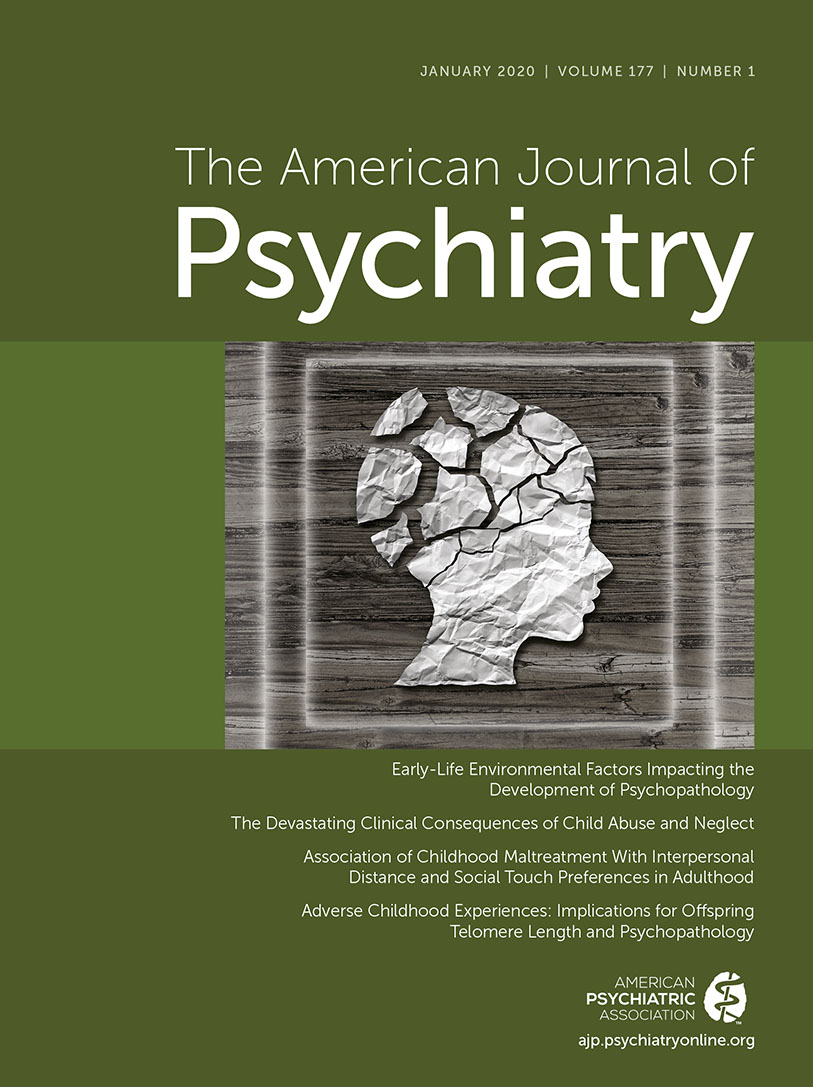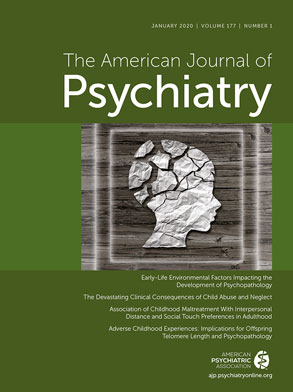to the editor: We thank Dr. Na for his interest in our study describing the association between tumor necrosis factor α (TNFα) and interferon-γ (IFNγ) concentrations in the immediate aftermath of trauma exposure and prospective development of posttraumatic stress disorder (PTSD). In our prospective emergency department study, we found that lower concentrations of TNFα and IFNγ (assayed from blood samples collected in the emergency department approximately 3 hours after trauma exposure) were associated with the future development of chronic PTSD (
1). These results suggest that TNFα and IFNγ concentrations in the aftermath of trauma exposure may serve as predictive biomarkers of PTSD development, while also providing interventional targets to prevent the development of PTSD in an emergency department setting. Our results were significant while controlling for sex, body mass index, time elapsed between trauma exposure and blood sampling, time of day of blood sampling, and incident and premorbid interpersonal trauma exposure (
2). Our assessment of previous trauma exposure was conducted in the emergency department via the Posttraumatic Diagnostic Scale (
3), which assesses the presence or absence of premorbid interpersonal trauma exposure but does not capture any details regarding each trauma endorsed (e.g., duration and length).
Our initial analyses did not control for physical injuries that may have affected immune responses in trauma survivors due to tissue injury (
4), as suggested by Dr. Na. We reevaluated our multivariate analyses of covariance (MANCOVA) analysis on the proinflammatory cytokines assayed by also controlling for the severity of physical injuries assessed in the emergency department. Similar to what we reported (
2), this MANCOVA analysis showed a multivariate main effect of class membership on proinflammatory cytokine concentrations (F=2.13, p=0.031). The subsequent univariate analyses that controlled for severity of physical injury also showed a main effect of class membership on concentrations of TNFα (F=3.36, p=0.036) and of IFNγ (F=4.05, p=0.019). Posttraumatic concentrations of TNFα were significantly lower in individuals in the chronic PTSD class compared with individuals in the recovery (p=0.015) and resilient classes (p=0.015). Similarly, posttraumatic concentrations of IFNγ were significantly lower in individuals in the chronic PTSD class compared with individuals in the recovery (p=0.010) and resilient classes (p=0.006). There were still no significant differences in interleukin (IL) 1β and IL-6 concentrations based on class membership in these analyses.
The lack of a relationship between IL-1β and IL-6 concentrations and chronic PTSD development alongside the relationship between low TNFα and IFNγ concentrations and PTSD development is intriguing in the context of our prospective study, as IL-1β and IL-6 are involved in the acute immune response and in glucocorticoid negative feedback (
5,
6). However, because cytokines were assessed in the immediate aftermath of trauma exposure, the lack of an association between IL-1β and IL-6 concentrations and prospective development of PTSD is not incompatible with cross-sectional data showing heightened IL-1β and IL-6 concentrations in those with PTSD (
2). Finally, it is possible that our study was underpowered to detect smaller effect sizes, making it difficult to interpret the null results with IL-1β and IL-6 at this time.
Overall, we agree that replications will be necessary to assess whether TNFα and IFNγ are biomarkers of PTSD risk and whether our findings are generalizable to other samples. The ongoing, multisite AURORA study funded by the National Institute of Mental Health may provide this opportunity in the near future (
7).

